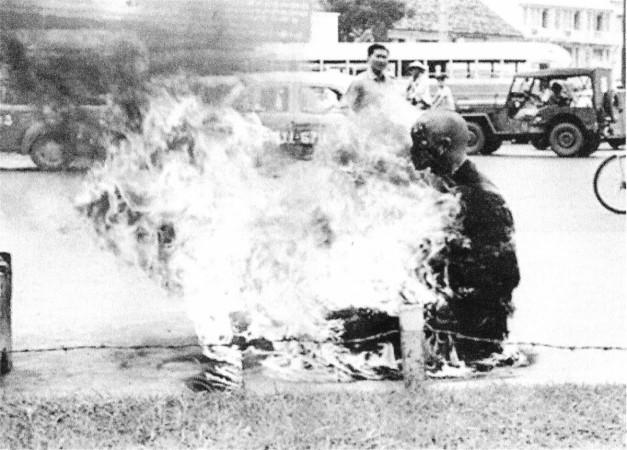![[Representational image] Buddhist monk](https://data1.ibtimes.co.in/en/full/632155/buddhist-monk.jpg?h=450&l=50&t=40)
A South Korean monk on Saturday reportedly set himself on fire after president Park Geun-hye struck a deal with Japan over using "comfort women" from South Korea for Japanese armed forces during the Second World War. The suicide note claimed the deal was inadequate and also demanded the resignation of the president. The incident seemed like a rerun from 1963, when a Buddhist monk in Vietnam immolated himself on a busy road to protest against the persecution of Buddhists in the country.
The 64-year-old monk was rushed to Seoul National University Hospital with third-degree burns, and was unconscious. In a note he left behind, he said Park has committed "treason" by signing the deal, which does speak of reparations and an apology for Japan's use of Korean women as prostitutes — later given the euphemism "comfort women" — for its soldiers during Second World War.
Though it was initially believed that the June deal between South Korea and Japan would put paid to animosity between the two countries over the issue, many Koreans still think Japan never really took blame for its actions, though the deal does include an apology and compensations.
The Vietnam incident
The manner in which the Korean monk has set himself afire bore strong resemblances with Vietnamese monk incident. On June 11, 1963 Thich Quang Duc set himself afire in the middle of a road in erstwhile Saigon.

Duc reportedly arrived at a busy intersection in the city as part of a procession, and sat down in the lotus position in the middle of the road on a cushion. A fellow monk then doused him in petrol and left a trail behind him. A lit matchstick was thrown into this trail, and Duc was soon consumed by fire.
What surprised and shocked onlookers — and later readers across the world who saw the photos of the incident — was that Duc did not even flinch or made any sound while he was being burnt.









